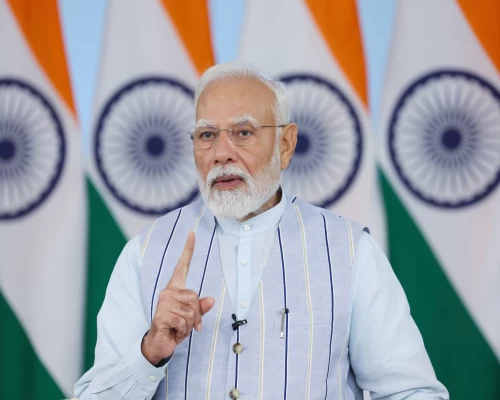
New Delhi: As Delhi sizzles at a 'real-feel' temperature of nearly 49°C, relief seems more urgent than ever. But your air conditioner may soon come with a limit - no cooler than 20 degrees celsius. Yes, even when the mercury climbs to punishing highs.
On Tuesday, Union Power and Urban Affairs Minister Manohar Lal Khattar announced a new move to curb India's growing electricity consumption: all new air conditioners - whether in homes, offices, hotels, or even cars - will be programmed to operate within a fixed temperature range of 20°C to 28°C.
The rationale? Energy savings.
Speaking at a press conference to mark 11 years of the Narendra Modi-led government, the Minister explained that every one-degree drop in temperature setting leads to a 6% jump in energy usage. With over 10 crore ACs already in use and 1.5 crore added each year, this small shift could translate into big savings. In fact, government estimates suggest that limiting AC settings to 20°C at minimum could save up to 3 gigawatts of peak electricity demand - enough to power a major city.
'New air conditioners will not allow setting temperatures below 20°C and above 28°C,' Khattar said, confirming that discussions are ongoing with manufacturers to standardise this range in upcoming models.
To support this growing energy demand while ensuring sustainability, the government is also ramping up its green energy initiatives. Khattar announced a Rs 5,400 crore Viability Gap Fund to support 30 GWh of battery storage projects, expected to draw investments worth Rs 33,000 crore by 2028. This comes in addition to the 13.2 GWh of battery storage capacity already being supported through existing schemes.
India’s electricity generation capacity has surged to 472.5 GW - up from 249 GW in 2014 - with a record addition of 34 GW in 2024–25 alone. Remarkably, 29.5 GW of that came from renewable energy sources.
But even as generation grows, so does consumption - and the government is clearly betting on behavioural change as a critical lever.
The new air conditioner policy is still in the works, but it reflects a fundamental shift - energy efficiency is no longer optional, especially in a country grappling with heatwaves, climate stress, and a rising urban middle class hungry for cooling comfort.
So the next time you're tempted to crank your AC down to 16°C, remember: it may not be an option much longer. The cool compromise? A more sustainable summer - for everyone.
BI Bureau













